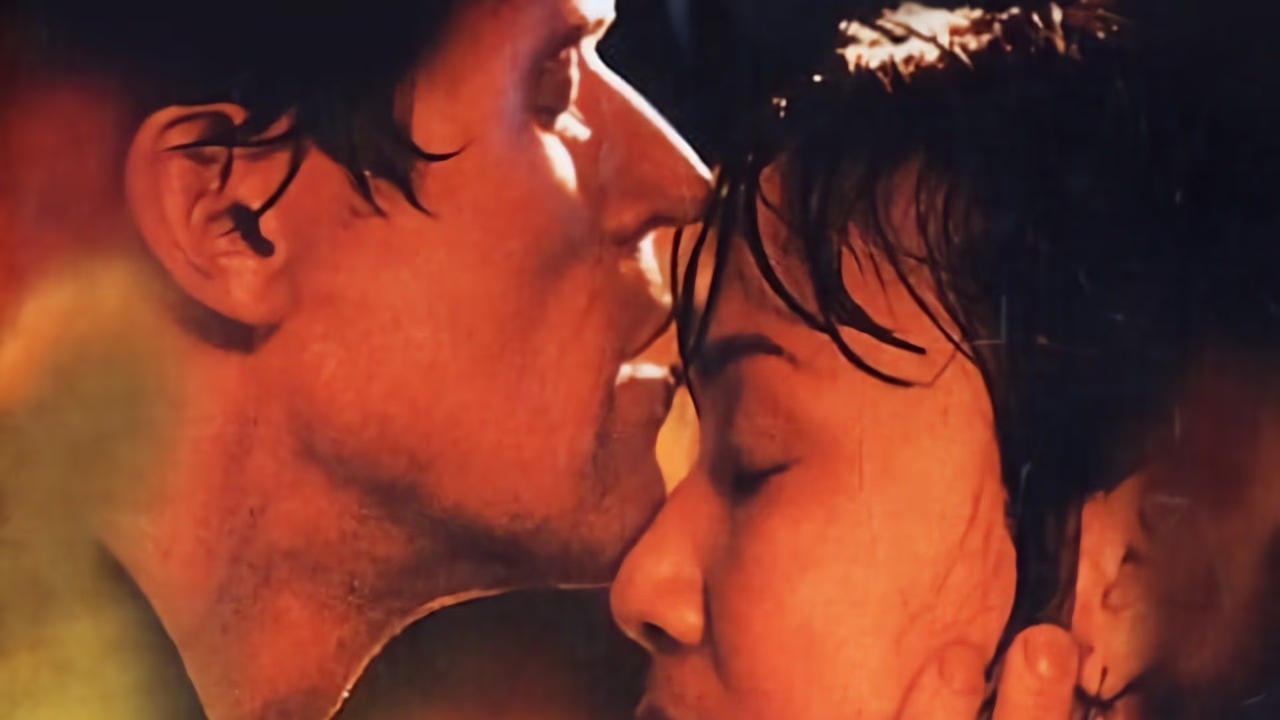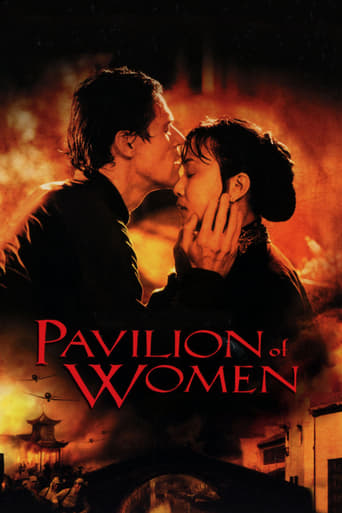



Better Late Then Never
Fun premise, good actors, bad writing. This film seemed to have potential at the beginning but it quickly devolves into a trite action film. Ultimately it's very boring.
View Morean ambitious but ultimately ineffective debut endeavor.
View MoreIt is neither dumb nor smart enough to be fun, and spends way too much time with its boring human characters.
View MoreWell, I grant you that the film could have been much better with Chinese dialog, but since I do not speak Chinese, English worked fine for me. I found the colorite of the periode just great. Costumes, interior, culture - but than again - I'm not Chinese and are probably not able to see the flaws and am very happy for it. I liked the film, that I by chance came by, and would not have seen if my sister had not tipped my off. I found that it was portraying the eara between old and new time quite believable as it take place around the Japanese invation of China. The lead man is an American and the one bringing change with him. The female lead is a strong Chinese lady who plays her role most brilliantly. The only drawback that I could see was the end that was too yacky for me knowing what Mao did to his country in the years that followed. If you like films about China this one could well be your thing.
View MorePavilion of Women was billed by People's Daily, China's official newspaper, as the "first Chinese-made Hollywood film", and indeed was jointly produced with Universal Pictures, and shot in both English and Chinese.If you never read the book, and come to this movie cold, and accept it as a Hollywood-style romantic epic melodrama set in 1930s China, then you probably won't be disappointed especially if you know nothing about Chinese society at the time. The film has high production values and compelling narrative elements in terms of western values that heroicize transgression: the irresistible romantic attraction between a Chinese wife and Western priest transgresses both social and religious propriety; the attraction between Chinese son and his father's concubine transgresses generational lines.The problem is that the film is a contemporary love story masquerading as an historical drama that seeks to accrue legitimacy by referencing Pearl Buck's novel of the same name. The entire plot, the setting, the characters, their motivations, and their interrelationships are all utterly at odds with Buck's novel. The filmmakers took Buck's thoughtful story of a women's personal spiritual and philosophical odyssey in the context of traditional family relationships, and transformed it into a fairly ordinary story of physical and material lust to which is lent false importance through the crutch of sensational scenes of fire and war, and the pathos of orphaned children. Buck must be turning over in her grave.The movie is set in Suzhou (rather than in an area remote from the war); it has omitted characters (two of the four brothers, one of their wives, and Fengmo's wife), changed the personality of every major character (Mr. Wu, Madame Wu, Andre); and created events that never occurred in the book (the orphanage fire, the Japanese invasions), manufactured encounters that would have been impossible in Chinese society of the time (e.g. conversations and meetings between Madame Wu and Andre, between Fengmo and Qiuming), and falsified the very social structure and gender relations that the novel sought to critique and explore.The mutilations are legion, and surface right away, in the first moments of the film even before the credits. 1) In the movie bringing in a concubine is presented as the mother-in-law's idea whereas in the book it was Madame Wu's idea for freeing herself from childbearing (which makes Mr. Wu's fixation on oral-sex in the movie pure lasciviousness). 2) In the book, Madame Kang's birth difficulty occurs many months after Madame Wu's birthday and follows a series of conversations between the women about age and births. 3) In the book the priest Andre plays absolutely no part in Madame Kang's birth crisis; instead Madame Wu commandeers Mr. Kang to assist in the birth as a way of demonstrating to him the consequences of his sexual appetite so that he will leave her friend alone. Madame Wu emerges the hero, but the movie makes the white male the hero (surprise!). 4) The movie presents Mr. Wu as a domineering husband, whereas in the novel he is actually quite compliant and loving and resistant to the idea of a concubine. 5) In the book the concubine's arrival in the Wu household is discreetly maneuvered not proclaimed with a wedding, and absolutely not publicly revealed as a face-losing surprise to Mr. Wu. 6) The necklace in the movie is complete fabrication. The only thing Qiuming (correct transliteration for "autumn brightness") brings with her to the Wu household is the embroidered jacket in which she was swaddled as a foundling -- in the novel this later leads to a reuniting of Qiuming and her daughter (where is the daughter in the movie?) with her birth mother (the movie just sends her off all alone on a boat with some silver coins). 7) The novel's Andre was born in Italy, not the U.S., had a full beard, and was hired to teach foreign languages to Fengmo. It would have been prohibited for Qiuming to participate; even Madame Wu herself had to eavesdrop from another room. Because of the domestic and social controls on interaction between the sexes, the conversations and encounters in the movie could never have taken place. 8) The orphans in the book are all girls (basically only daughters are abandoned). And 9) in the book no one was directly involved with the army, the Communist Party, or the Sino-Japanese War.There are many, many more discrepancies, and I could go on and on about them. But suffice it to say that this movie should not have been given the name of the novel; and indeed, the title makes no sense in the context of the film. The movie should have been given a different name so that it could stand on its own merits instead of cheapening Buck's literary work and inviting the kind of harsh criticism I have felt compelled to give here.
View MoreHaving read the entries in the IMDb forum, I was really looking forward to watching this movie--what a disappointment! The movie's cast was mainly Chinese but apart form the very last scene (3 years later) and the banquet scene I could not see anything Chinese in it. Everyone seemed to be talking all the time, rather like in an American movie.And why does everyone have to speak English? Don't they speak Chinese in China? Not even the pictures were just marginally as powerful as in most Chineese films I have watched.As the end credits rolled across the screen I realized--Pearl S- Buck. Well, I stopped reading Pearl S.Buck when I was 13 as I couldn't see any challenge in her books. They rather depict the "good old days" the way they never were.
View MoreMovie was interesting,exciting, and well acted, an excellent take on Pearl Buck's book. It elicited some sadness, but also some happiness and hope. I enjoyed the movie and found it interesting the way that the Director was able to portray the time frame in China by use of the background scenes. Also gave good insight into China's previous culture, and political environment.
View More